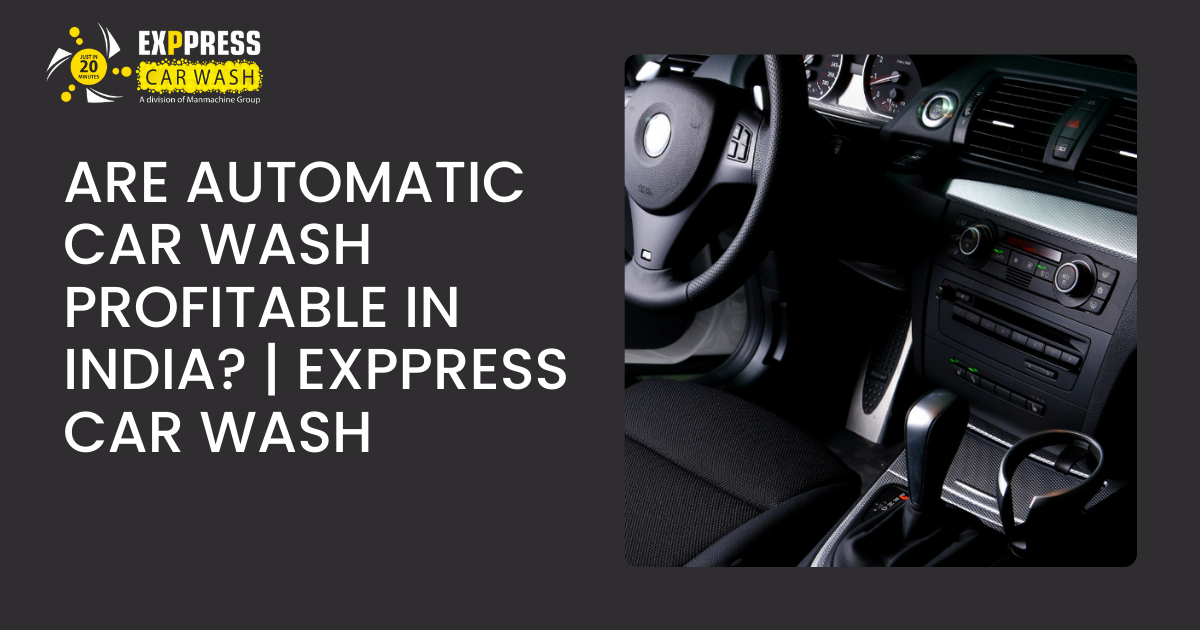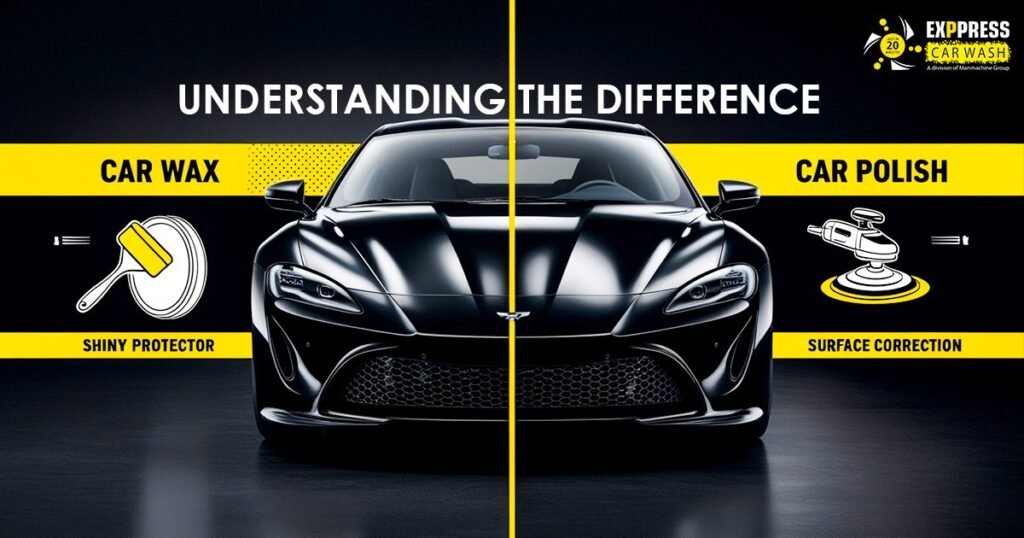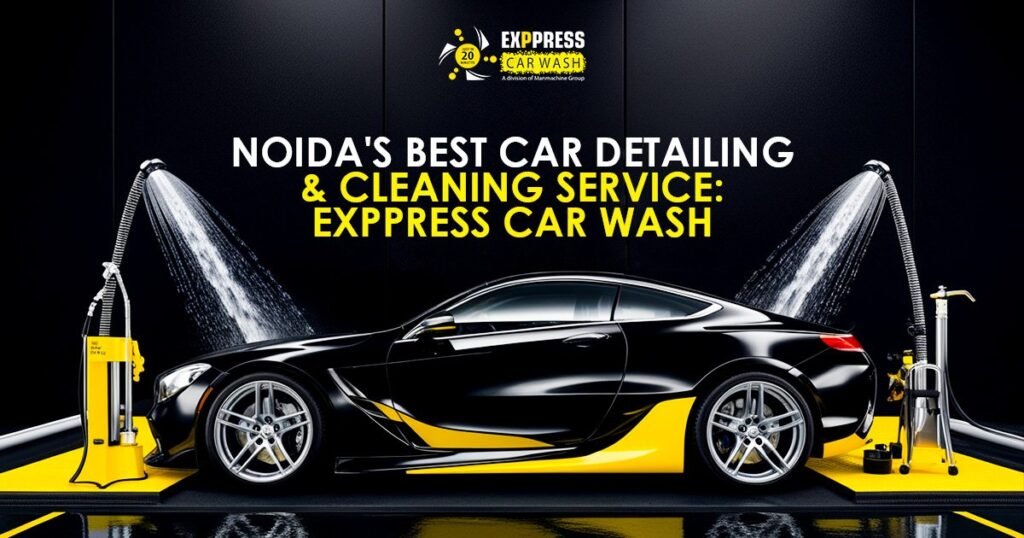
Determining the profitability of automatic car wash businesses, such as Exppress Car Wash, in India depends on various factors, including location, market demand, competition, operational efficiency, and pricing strategies. Here are some considerations regarding the profitability of automatic car washes in India:
Automatic car wash in India
Market Demand: The demand for car wash services in India is influenced by factors such as urbanization, increasing vehicle ownership, and growing awareness of vehicle maintenance. In densely populated cities and urban areas where car ownership is high, there is generally a higher demand for car wash services, which can contribute to the profitability of automatic car wash businesses.
Competition: The level of competition in the local market can impact the profitability of automatic car wash businesses. Areas with fewer competitors may offer better opportunities for profitability, while highly saturated markets may require strategic differentiation and pricing to attract customers.
A car detailing franchise allows entrepreneurs to enter the automotive service industry with the support of a proven brand. Franchisees benefit from expert training, access to high-quality products, and operational support, enabling them to offer premium services like paint correction and interior restoration. This business model reduces startup risks and helps build customer loyalty, making it an ideal choice for those passionate about vehicle care.
Operational Efficiency: Efficient operations and streamlined processes can contribute to the profitability of automatic car wash businesses by reducing overhead costs, maximizing throughput, and minimizing downtime. Investing in modern equipment, implementing effective scheduling systems, and optimizing workflow can improve operational efficiency and profitability.
Customer Base: Building a loyal customer base through excellent service, convenience, and competitive pricing is essential for the profitability of automatic car wash businesses. Repeat business and customer referrals can drive revenue growth and enhance profitability over time.
Cost Structure: Managing operational costs, including labor, utilities, maintenance, and equipment depreciation, is crucial for maintaining profitability in the automatic car wash business. Franchisees of Exppress Car Wash and similar brands must carefully monitor expenses and implement cost-saving measures to maximize profitability.
Marketing and Branding: Effective marketing and branding strategies can help attract customers and differentiate the automatic car wash business from competitors. Leveraging digital marketing channels, offering promotional incentives, and emphasizing the benefits of automated car washing can enhance profitability and market share.
Market Demand for Car Wash Services
The market demand for car wash services can vary based on several factors, including population density, vehicle ownership rates, disposable income levels, urbanization, climate, and cultural preferences. Here are some key considerations regarding the market demand for car wash services:
Growing awareness of vehicle hygiene
- As people become more health-conscious and aware of the importance of cleanliness, there is a growing emphasis on maintaining hygiene not only in personal spaces but also in vehicles.
- Awareness campaigns, health concerns, and the COVID-19 pandemic have heightened the importance of cleanliness and sanitation, leading to increased demand for professional car wash services.
- Consumers are increasingly seeking car wash services that offer thorough cleaning, disinfection, and sanitization to ensure the cleanliness and safety of their vehicles.
Increasing urbanization leads to higher vehicle ownership
- Urbanization is a global phenomenon characterized by the migration of people from rural to urban areas in search of better economic opportunities, education, and lifestyle.
- Urban areas typically have higher population densities and greater economic activity, leading to increased vehicle ownership rates.
- In urban centers, personal vehicle ownership is often driven by factors such as improved infrastructure, commuting needs, and lifestyle preferences.
- As urbanization continues to accelerate in many parts of the world, including India, the number of vehicles on the road is expected to rise, driving up the demand for car wash services.
Operational Efficiency of Automatic Car Wash
The operational efficiency of automatic car wash systems offers several advantages, including faster processing of vehicles and reduced labor costs compared to manual car wash services. Here’s how these factors contribute to the overall efficiency of automatic car wash operations:
Faster processing of vehicles
- Automatic car wash systems are designed to process vehicles quickly and efficiently, allowing multiple vehicles to be washed simultaneously.
- Advanced technology, such as conveyor-based systems and high-pressure water jets, enables rapid cleaning of vehicles without sacrificing quality.
- With automated processes and optimized workflows, automatic car wash systems can handle a high volume of vehicles per hour, reducing wait times for customers and increasing throughput.
Reduced labor costs compared to manual car wash services
- Automatic car wash systems require minimal labor compared to manual car wash services, resulting in significant cost savings for operators.
- Instead of relying on a team of manual laborers to wash and dry vehicles, automatic car wash systems are largely self-operating, requiring only a small number of attendants to oversee operations, assist customers, and perform routine maintenance.
- By reducing reliance on labor-intensive tasks, automatic car wash systems can minimize labor expenses and improve overall profitability for car wash businesses.
Initial Investment and Setup Costs
The initial investment and setup costs for an automatic car wash facility depend on various factors such as the type and size of the facility, the brand and quality of equipment, and local market conditions. Here’s a breakdown of the typical equipment costs and infrastructure requirements for setting up an automatic car wash facility:
Equipment cost :
- Automatic car wash equipment comprises various components designed to wash, rinse, wax, and dry vehicles efficiently. Key equipment includes:
- Conveyor systems: These systems transport vehicles through the wash process and can vary in length and design depending on the facility’s layout and throughput requirements.
- Wash modules: These modules consist of high-pressure water jets, brushes, and foam applicators designed to remove dirt, grime, and debris from vehicle surfaces.
- Drying systems: These systems use blowers or air dryers to remove excess water from vehicle surfaces and minimize drying time.
- Water treatment and recycling systems: These systems filter, purify, and recycle water to minimize water consumption and environmental impact.
- The cost of automatic car wash equipment can vary widely depending on the brand, quality, features, and complexity of the system. A basic automatic car wash system may cost tens of thousands of dollars, while more advanced systems with additional features can cost hundreds of thousands of dollars.
Infrastructure requirements for an automatic car wash facility
The infrastructure requirements for an automatic car wash facility encompass various aspects to ensure smooth and efficient operations. Here’s a breakdown of the key infrastructure requirements:
Physical Space:
Adequate physical space is essential to accommodate the automatic car wash equipment, vehicle queueing area, customer waiting area, and any additional amenities.
The size of the facility will depend on factors such as the number of wash bays, the type of equipment installed, and the anticipated vehicle throughput.
The layout should allow for convenient vehicle circulation, easy access to the wash bays, and efficient flow of traffic through the facility.
Utilities:
Water Supply: An ample and reliable water supply is crucial for automatic car wash operations. The facility will require connections to municipal water lines or access to a well water source.
Electricity: The facility must have access to sufficient electrical power to operate the automatic car wash equipment, lighting, and other electrical systems. Electrical wiring and outlets should be installed according to safety codes and standards.
Drainage: Proper drainage infrastructure is necessary to manage wastewater generated during the car wash process. Drainage systems should comply with local regulations and prevent runoff of contami


